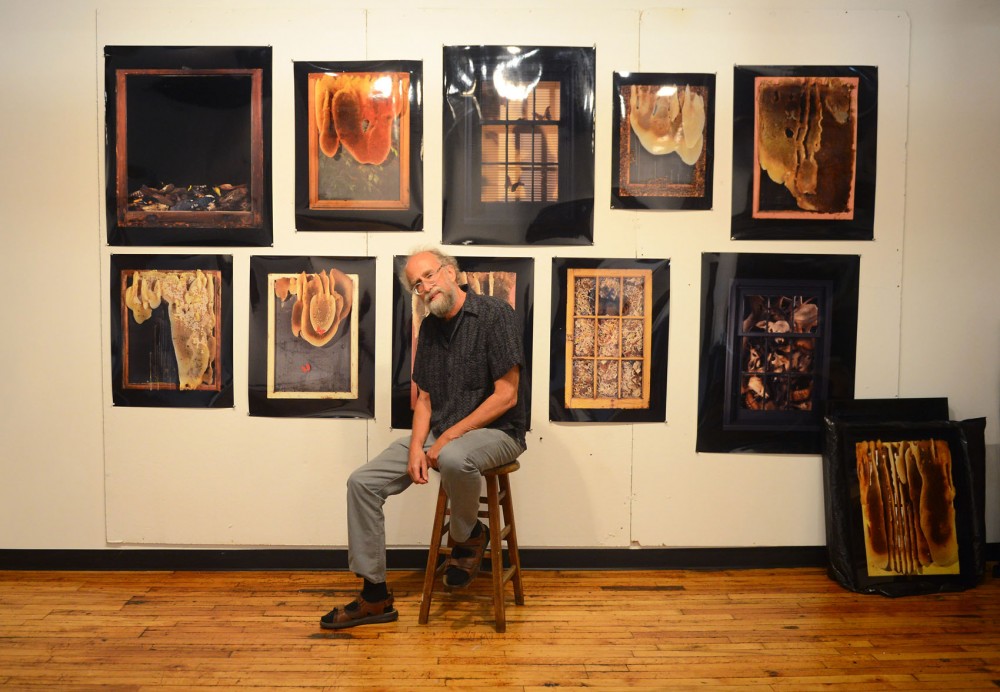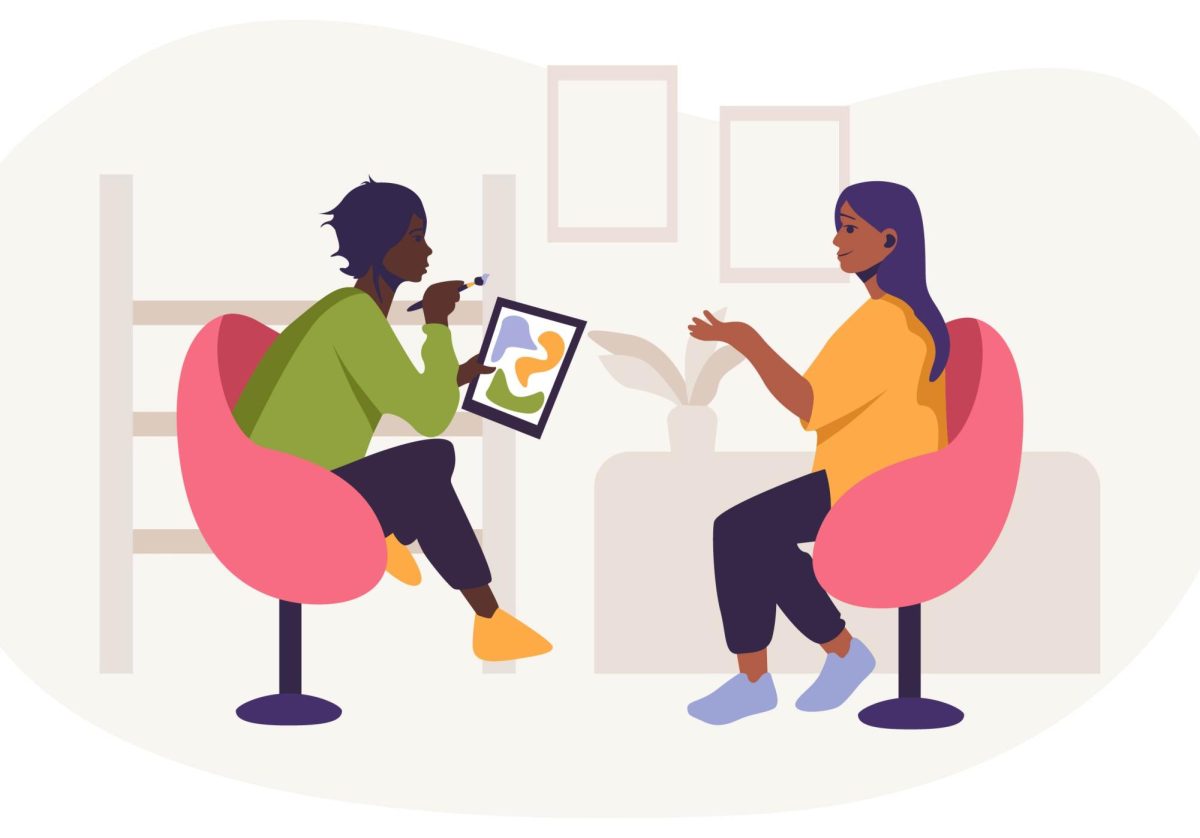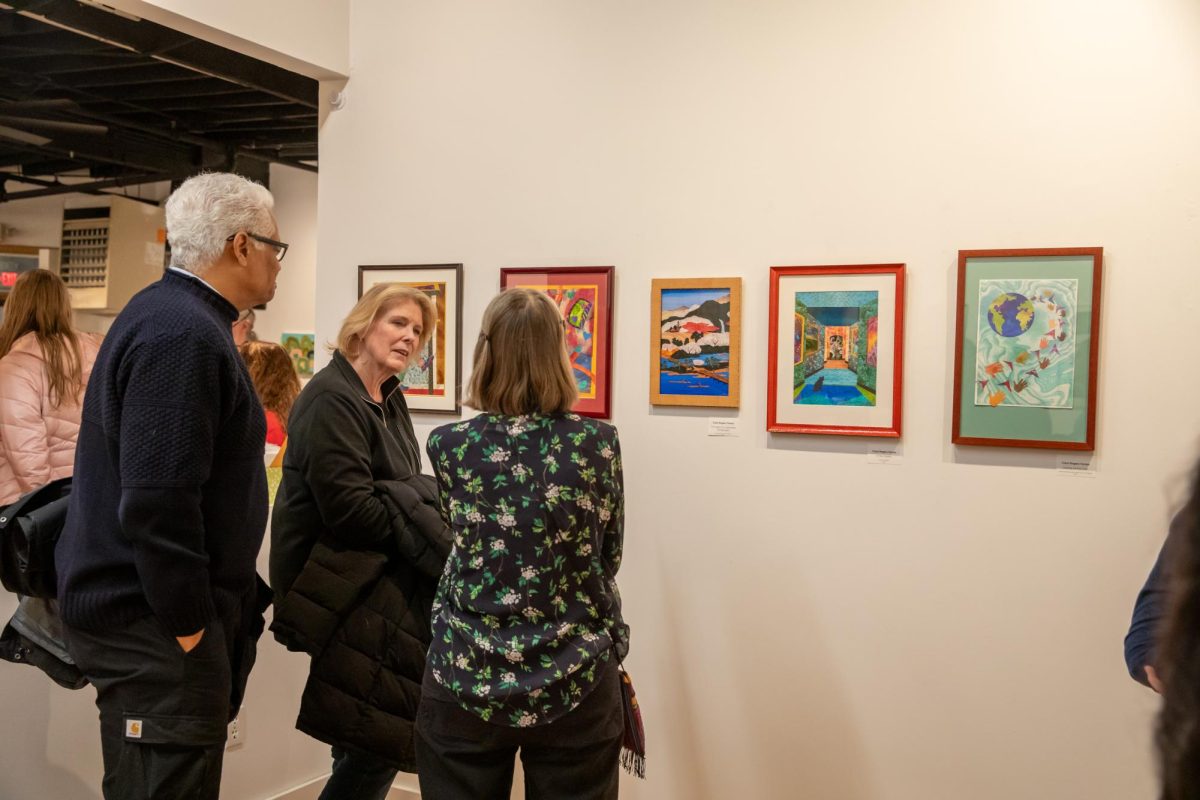Local artist Jeff Millikan left books outside so bees could create honeycomb in the pages. As with many of his projects, Millikan photographed the results.
“As they eat away at the text, [the bees] would reveal unusual juxtapositions of meaning and text,” he said. “The images are a little dark and haunting but seductive and beautiful.”
Along with other local artists and scientists, Millikan is part of a panel that will help launch the University of Minnesota’s new Bee and Pollinator Research
Laboratory on Monday. The groundbreaking event will mark a new collaboration between artists and scientists called the Institute for Advanced Study Bee Arts Collaborative.
The program’s first event will consist of an evening fundraiser, games of bingo and a panel discussion featuring artists, scientists and their work with bees.
The University’s Bee Squad — which develops bee education and training programs — organized the event, along with artists from the Gymnasium, a Twin Cities-based interdisciplinary and collaborative group that hosts events that generate creative thinking and brainstorming.
Previewing the panel
Since 2010, artist and activist Juan William Chávez has incorporated bees into his work.
Bees first grabbed his interest while he was photographing a massive vacant lot in his hometown of St. Louis. As he noticed the bees visiting flowers, he started thinking about creating a bee sanctuary to help their preservation.
Around the same time, he said, an article came out detailing the decline of the bee population in the city.
“I thought to myself, ‘Bees and St. Louis, we’re in the same boat. … How can we find a different way of looking at these vacant spaces and finding a potential for projects that are community-built, that promote discussion and dialogue?’” he said.
Chávez is working to designate that empty site as a bee sanctuary. In the meantime, he has created his own, smaller garden for bees outside of the nonprofit he runs — called Northside Workshop — where he runs workshops about bees and gardening.
“If you make a better environment for bees, you make a better environment for humans,” Chávez said. “If you don’t use pesticides in your garden, then you don’t ingest pesticides. If you plant flowers that they like, that gets you moving around talking to your neighbors, gets you more connected to the ecosystem.”
Mark Winston, renowned expert on bees and pollinators, will speak about some of the collaborations he has done with artists, including a project titled “Experiments” that explored how dancers and scientists have similar creative processes. As a part of “Experiments,” dancers choreographed a representation of an experiment Winston did with bees.
“We make a huge mistake in university education in compartmentalizing people,” Winston said. “It’s a very rich world out there when you branch out and become truly interdisciplinary. Artists and scientists working together is a very natural combination. At our best, we’re both extremely creative. We both experiment, and when something doesn’t work, we try something else.”
What: Inaugural Bee Arts Event
Where: North Star Ballroom, St. Paul Student Center
When: 7 p.m. Monday
Cost: Free for students








